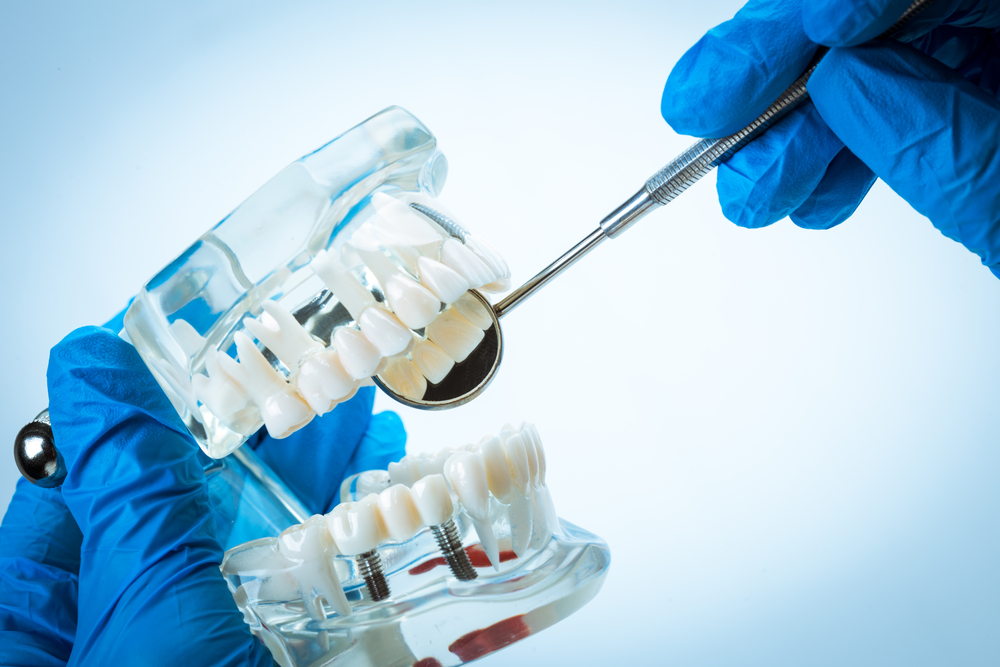Want to know more about the benefits of dental crowns and bridges? This is the place for you.
The focus of this article will be on teeth restoration through dental crowns and bridges, the advantages of dental crowns for teeth restoration and our professional team at Bald Hills Dental can help.
What You Need to Know About Dental Crowns & Bridges
You may have heard your dentist talk about dental crowns and bridges, but what exactly are they? We’re here to provide you with the answers you need.
A crown is used when your tooth is broken or weakened. It’s a manufactured cap to match your existing teeth in colour and texture. Once in place, the idea is that you won’t be able to tell the difference between what is real and what isn’t (unless you’re a professional).
A bridge, on the other hand, is a prosthetic used to replace missing teeth. Unlike dentures, it cannot be removed and needs to be cemented in metal.
Are Dental Crowns & Bridges Permanent?
This is a tricky question to answer as how long a crown or bridge will last often depends on how much you’re committed to maintaining your teeth restoration.
If you’re dedicated to taking care of your teeth and keep up good oral hygiene practices, there’s no reason your bridge or crown shouldn’t last between 5 and 15 years (or longer) before it needs replacing.
So How Do You Maintain Dental Crowns & Bridges?
Of course, the best way to ensure your bridge or crown is well maintained is to attend regular checkups.
You may find that once they are in place, you will need to attend more frequently than you normally would. This ensures everything is still in working order and helps us identify (and rectify) potential problems before they become a major issue.
But let’s talk about how you can maintain your dental crowns and bridges at home on a day-to-day basis.
– brush and floss twice daily
– use a dental pick after meals to remove excess food from between your bridge and the teeth next to it
– avoid especially cold or hard foods/drinks that will put extreme pressure on the bridge or crown
– use a fluoride mouth rinse
Benefits of Dental Crowns
Now’s the time for us to move on to the benefits of dental crowns. Here are some of the most common:
Fixes Missing or Broken Teeth
Let’s start with the most obvious – and the reason they’re used in the first place. Dental crowns fix broken or missing teeth; they’re protective caps to prevent further damage.
Extra Protection After Fillings or Root Canal Surgery
Even after a filling or root canal surgery, your tooth may still be weakened. The benefit of a dental crown is that it strengthens the tooth, and once again, protects it from being damaged.
Supports Bridges
Sometimes, a dental crown is used as an anchor for a bridge. This allows the bridge to stay in place without movement and ensures it’s properly fitted.
Restores Your Teeth
An essential component of teeth restoration, a dental crown helps improve the way your teeth function.
Weakened, broken or missing teeth can affect the structure of your mouth, which can hinder the way you chew, swallow or even speak. With a dental crown this is restored and it will alleviate any associated pain you may be experiencing.
Acid-Resistant
Dental crowns are known to be very sturdy and unlike normal teeth, are acid-resistant. This is because they are made of zirconia, which has those specific properties.
Metal Allergy Alternative
Bridges and fillings are made with metal, but if you have a metal allergy, it’s a no-go solution. Dental crowns can be made with porcelain or ceramic so are a great alternative.
Can Be Used on a Small Surface
Another benefit of dental crowns is that it doesn’t need the tooth to be intact to be effective. In fact, research suggests that crowns can be attached to less than a quarter of your tooth’s surface.
Custom
Dental crowns (and bridges for that matter) are custom-made to fit your mouth. They’re moulded specifically and once in place there’s no slippage like you would find with dentures.
What to Expect in Your Dental Crown Procedure
If you need a dental crown, the procedure will likely take place over a couple of visits.
Tooth Preparation
Tooth preparation is completed in the first visit. This is where, using a local anaesthetic to ensure you’re comfortable, we examine the tooth requiring the cap, and file it down to prepare it for the crown.
We also take x-rays/impressions and may perform root canal surgery if needed. We will then install a temporary crown to protect your tooth until the more permanent one returns from the lab.
Fitting
Once your dental crown arrives at our clinic (generally two weeks after the first appointment), we’ll arrange for you to come back and have it fitted. This will involve removing your temporary crown and replacing it with the new one.
Recovery
The recovery period after having a crown is usually fairly quick. You might experience some slight discomfort due to swelling for a few days but this should improve with good oral care.
Keep in mind that it may feel different at first while the crown settles. If that’s not the case and you’re in pain or very uncomfortable, contact our team for advice.
How to Choose Between Dental Crowns & Bridges
When choosing between dental crowns and bridges, we recommend following the advice of your dental professional. We will take into account your individual needs and guide you accordingly. However, the choice may also come down to:
– aesthetic preference
– your oral health
– budget
– number of teeth missing,broken or damaged
How Bald Hills Dental Can Help
At Bald Hills Dental, we specialise in a range of general dentistry and orthodontic services, and can advise you on improving your oral health (including tips for teeth restoration with dental crowns and bridges).
We’re committed to making our patients feel as comfortable as possible during their dental check ups or procedures and take extra care with children or those who find themselves anxious with the process.
Want a healthy smile with dental crowns and bridges? Book an appointment with our dentists today to find out how we can help with your teeth restoration.




